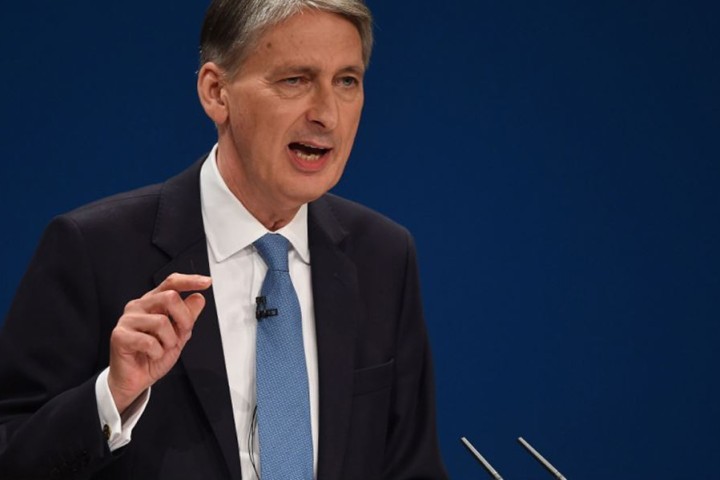He said: “Value Added Tax (VAT) is the most time-consuming levy for small business owners to manage. A small registered firm loses six working days a year to VAT compliance on average, draining their productivity.
“Speculation about a drop in the £85,000 turnover threshold for registration is very concerning. Suddenly dragging more small firms into the VAT regime would be incredibly damaging, placing a huge admin burden on thousands of businesses and bringing them into the scope of Making Tax Digital by stealth.“The Chancellor should maintain the current VAT registration threshold until 2022. At the same time he should consider a smoothing mechanism – as recommended by the Office for Tax Simplification – to address the issue of small firms bunching around the £80,000 turnover mark. Doing so would incentivise small business growth rather than stifle it.”
The FSB is also calling for support for the hard-pressed retail sector. According to reports the Chancellor will cut business rates bills by a third for almost half a million small high street shops in a £1.5bn spending pledge.Mr Cherry described the move as a “welcome step” in getting the urgent help that all small businesses need.
He said: “Small firms are the lifeblood of our high street. They are under a huge amount of pressure, with current business rates bills adding to that ever-increasing strain. For far too long they have come up against an outdated and unfair rates system and it’s clear that change is needed.“To make a real difference to every high street, this relief needs to include hospitality and service businesses, not just retailers, and we will be looking forward to hearing more details from the Government on this.”
He added: “The high cost of town centre parking and poor infrastructure has also been ramping up the pressure on small high street firms. This investment in transport and infrastructure must be targeted at fixing potholes, improving local roads and providing more free parking to encourage shoppers to the high street.”Richard Roberts, partner at independent legal practic Brabners, said: “The prospect of further store closures from another stalwart of the UK high street, Debenhams, is yet more proof that the government must do more to alleviate the pressure on bricks and mortar retailers. Retailers across the country will be praying for a lifeline from the Chancellor.”
He must also support training and commit more backing to bridging the growing skills gap in engineering when he delivers his Autumn Budget statement, according to Preston-based civil and structural engineering consultancy TRP Consulting.Director Geoff Wilks says a shortage of talent across all sectors of engineering is beginning to “bite hard”. And he fears it could get worse.
He said: “The focus of the Budget will be very much on tax issues, infrastructure investment and the looming shadow of Brexit. However, we would urge the Chancellor to put some strong focus on investment in people and skills.”That includes recruiting more STEM (Science, Technology, Engineering and Maths) teachers in schools and more investment in developing the skills of the existing workforce, to meet the challenges of fast-emerging technological advances.
Wilks said: “A shortage of people with the appropriate skills that all areas of engineering require is already starting to have a negative impact and it is set to get worse if we don’t act.“The effect of Brexit on attracting talent from Europe is likely to also have a negative effect and the pace of technological change is another major and growing challenge for engineering.”
He added: “There has been much talk about the need to boost productivity. Having the skills to harness technological advances is vital to this.“Businesses such as ours are continually investing in our staff. More commitment from the government would be welcome. This is vital for the health of the wider economy.”
He added: “Engineering UK has stressed the need to see more STEM specialist teachers in schools and to address the skills needs of the engineering sector as technological advances gather pace. The Chancellor needs to respond.”North West firms want the Chancellor to take action to create a better environment for business growth in today’s Budget, according to new research from Lloyds Bank Commercial Banking.
Lloyds Bank asked firms in the North West what they would like to see the Chancellor prioritise in his Budget to help their business.Topping their wish list was increased investment in transport infrastructure, with firms deeming the measure as important as action to freeze or lower business rates (both 34 per cent).
Other measures regional firms are keen for the Chancellor to focus on include skills, to ensure they can recruit the talent they need (11 per cent), and a pledge for the UK to have the lowest corporation tax rate of the G7 countries (10 per cent).Another nine per cent of businesses hoped for an increase in the Annual Investment Allowance cap.
Currently, the government’s limit on the amount of business equipment firms can claim tax relief on is £200,000. Those surveyed by Lloyds Bank hoped to see this increased to £1m to encourage investment and small business growth.Enjoyed this? Read more from Ged Henderson























